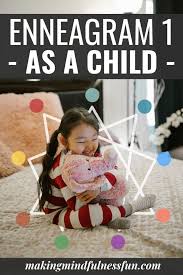In this article, we discussed the meaning of enneagram, the benefits, the type, furthermore we also talked about the tips for enneagram.
Definition
The Enneagram is a personality type system that can help parents understand their children’s motivations, feelings, and behaviors. However, some say that labeling children with an Enneagram type before they are ready can be harmful.
Benefits of using the Enneagram with children
Improved communication
Understanding your child’s motivations and fears can help you communicate with them more compassionately and effectively.
Better understanding
The Enneagram can help you understand your child’s personality, how they learn, and what they need from a mentor.
Empathy
The Enneagram can help you understand your child’s behavior and feel empathy for them.
Personal growth
The Enneagram can help you understand your child’s growth path and how to help them develop beyond their limitations.
Self-regulation
The Enneagram can help you learn how to self-regulate as a parent.
Some Enneagram types and their characteristics
Type 1
Also known as the Reformer, this type is characterized by a desire to improve the world and overcome adversity. Type 1s are reliable, responsible, and honest.
Type 2
Also known as the Helper, this type is characterized by empathy, sincerity, and generosity. Type 2s can also be sentimental and people-pleasing.
Type 3
Also known as the Achiever, this type is characterized by a desire to appear successful and admirable. Type 3s are often motivated to excel in their interests and may like to be well-dressed and organized.
Type 4
Also known as the Individualist, this type is characterized by creativity, sensitivity, and emotional honesty. Type 4s can also be moody and self-conscious.
Type 8
Also known as the Challenger, this type is characterized by natural leadership skills and a tendency to question authority. Type 8s are often self-confident and may stand up for others.
Type 9
Also known as the Peacemaker, this type is characterized by a need to maintain inner balance and peace. Type 9s are often motivated to get along with others and avoid conflict.
You can use an Enneagram test to help identify your child’s personality type.
Tips for parenting children using the Enneagram
Be open-minded: Accept that your child may be different from you and avoid judgment.
Support their interests: Allow your child to develop their own personality and interests.
Encourage creativity: Help your child explore their emotions and perspective through creative expression like writing, painting, or drama.
Create a culture of communication: Ask your child how they feel and what they’re thinking about.
Help them recognize their processing styles: Help your child recognize how they process information, such as through their head, heart, or body.
Pick your battles: Be selective about when to call your child out on their behavior.
Be aware of their personality traits: Consider the personality traits that influence your parenting.
Here are some tips for Enneagram types:
Practice self-care: Prioritize self-care and relationships, even when you feel busy.
Set boundaries: Learn to say no when needed, and be clear about your needs.
Acknowledge emotions: Validate the emotions of others, and help them develop emotional intelligence.
Don’t take things too personally: Try to avoid hurting others’ feelings.
Connect with nature: Spend time outdoors, such as going for a walk or sitting in a park.
Create a comfort zone: Try activities outside of your comfort zone, as it gets easier each time.
Embrace the present moment: Savor the moments with your loved ones, and be fully present.
Schedule quality family time: Create lasting memories and strengthen family bonds.
Conclusion
The Enneagram is a personality typing tool we can use in parenting. Narrow down your child’s very distinct personality to nine different types and you’ll feel like you unlocked the treasure chest to effectively guiding them into the years beyond childhood.


